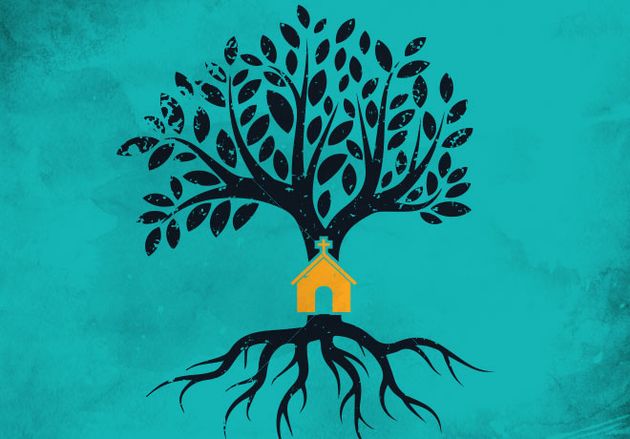Covid-19 might just be an extraordinary interruption that we can attend to, manifesting, as Jesus did, that the rule of God’s love has come on earth as it is heaven.
![Image via [link]Lausanne Movement[/link].](https://cms.evangelicalfocus.com/upload/imagenes/5f608bcfc7cbd_lgapandemic.jpg) Image via [link]Lausanne Movement[/link].
Image via [link]Lausanne Movement[/link].
Global events such as a pandemic are rarely experienced in uniform ways. Consideration of global trends can helpfully inform our understanding of local contexts which are crucial to effective local responses.
What follows are some key issues and ways in which the church in mission might respond.
One might expect a pandemic to strengthen the muscle of global institutions designed to manage impacts of such events. However, in the first six months of the pandemic, it is the arm of the Nation State which has been strengthened. 1
Many governments have wielded unprecedented powers ostensibly to contain and manage the impacts of the pandemic. The danger of creeping authoritarianism—increasing security measures, surveillance, and police enforcement—has undermined cherished democratic values in many nations and given rise to uncertainty and fear for the future for many.
However, there are also signs of strengthening of civil society; an increasing level of localized ‘neighbourliness’ and a democratizing, grass-roots, ‘welfare’ vision in many regions are pushing for accountability and a more humane economy.
In 2014, Ian Goldin, a global expert on the systemic risks created by globalization and author of The Butterfly Defect, predicted that a pandemic would cause the next financial crisis.
Current economic impact analysis draws parallels with the 1929 Great Depression and projects GDP contractions not seen since World War II. Even best-case scenarios predict a global recession in the wake of COVID-19. 2
The impacts of a pandemic affect us all, but not equally nor in the same ways; just in terms of employment and business we can see a differential impact with both boom and bust happening at the same time.
Whilst there has been a steady de-globalizing of supply chains over recent years, the pandemic’s disruption to global trade and labour flows will speed up this move to ‘onshore’ key industries in regions that can afford to do so. 3
The longer term impacts on tourism and travel could result in up to 50 million job losses, and a minimum 10-month rebound period will hit Asia’s economy particularly hard. 4
The connection between the emergence of new diseases and changes in climate and biodiversity is increasingly recognized by experts who regard the current pandemic as a wake-up call we urgently need to heed.
The illegal animal trade, deforestation, and intensive farming practices all contribute to increasing environmental degradation and risk. 5
Whilst there are immediate benefits from ‘lockdown’ measures such as reduced air pollution, 6 in many urban areas this is likely to be short-lived as the re-boot of the global economy gains momentum.
The social impact of the pandemic is widespread and deep, leaving no one unaffected. Increasing social disintegration is highly likely if governments and communities do not offer the necessary support to those left jobless and hopeless.
Evidence of deteriorating mental health is just one of a growing number of global public health issues. Of significant concern is the possibility of an increase of hunger, which could more than double the current estimate of people suffering acute hunger around the world to 265 million, the majority in Africa and South Asia. 7
Clearly, the ongoing challenges posed by pandemics require us to think and act in a globally-connected but locally-focused way in order to address the great threats of poverty, inequality, climate change and biodiversity loss, antibiotic resistance, financial crises, and the multiple ways these impact jobs and livelihoods across the world.
Goldin believes we could be on the threshold of a period of significant global co-operation and positive reset across many spheres of life. In this ‘most incredible century for humanity’ it is not ‘whose army wins but whose story wins’. 8
He acknowledges that there needs to be a global recognition of the dignity and preciousness of life and of our interdependency with the non-human creation. It does not take much imagination to see the role that faithful Christian witness could have to this end.
‘Cooperation for the greater good is what will get us through this pandemic.’9 With reports in the secular press of signs of religious and spiritual awakening, it is evident that the insecurity of the times is creating new levels of openness.
Rowan Williams encapsulates our task in these times well: ‘We need a real rediscovery of a moral and spiritual politics—one that has a sense of public good, accountability and service. One that creates trus.. 10’
In response, I suggest three key gifts the church in mission offers to serve the common good with faith, hope, and love in an intra- and inter-pandemic world:

We do not have to look far to see the negative impacts of ‘losing our footing’ in place. We are living in a time when forcibly displaced persons are now at the highest level ever recorded. 70.8 million people11 are not living in familiar homes and communities, uprooted with all the associated insecurities and risks.
We have an unrevoked covenant to protect and care for the vulnerable in our communities who are disproportionately and negatively impacted by the effects of the pandemic, including those displaced.
The principle of subsidiarity devolves and decentralizes power to those closest to the issues at hand. In this way, local Christians can be effective in both raising awareness of vulnerable groups and by engaging practically in meeting needs where support infrastructure is poor or non-existent.
In this way we can contribute significantly to the strengthening of civil society and resilience especially in regions where there is either a weak or conversely authoritarian State.
Farmer-theologian and prophet for our times, Wendell Berry, has been calling our attention to the importance of loving and caring for the physical neighbourhoods we inhabit; what is good for the neighbourhood, including the natural environment—our home and God’s good gift to us—is good for us.
He also sees a clear link between the mentality which supports the degradation of the natural world, and that which tolerates or even promotes the abuse and mistreatment of racial and economic minorities. 12
The current pandemic has drawn attention to the numerous problems we have created through our poor stewardship of the natural world (including our own bodies) and Berry, alongside other Christian environmentalists, reminds us of the need for faithful commitment to a place which takes seriously the prayer for God’s will to be done on earth as it is in heaven, thereby reconciling, and restoring both the human and non-human creation.
So, wherever possible, we need to affirm the local and work to sustain the dignity and integrity of both the land and her inhabitants which are bound together in the covenant. This is indigenous wisdom which many of us in mission have overlooked.

In the wake of the ‘coronavirus infodemic’, we should discern the importance of truthfulness and trust in society more than ever. In a post-truth, digitally inter-connected world, a key role for mission is to continue to cultivate a discipleship of ‘love and of a sound mind’ (2 Tim. 1:7).
Pride, vested interests, and ignorance have contributed to confusion and corruption of the truth, dominating the public discourse, sowing fear and mistrust.
The church in mission has a vital contribution to make which requires us to be contextually immersed, relevant, and in humble service to the truth, however much it may challenge our present alliances.
It is concerning that Christians, past and present, are associated with generating fear-filled conspiracies which have incited dangerous behaviour, and even violence, against other groups in society.
At the same time, Christians, along with other minority groups, have also been the victims of conspiracy theories. 13
Our pursuit of truth needs a steady soundness of mind grounded in love rather than fear, and in service to the gospel of peace. In times of crisis, we need to find ways to discover and communicate truth effectively.
We also need to build capacity for the prophetic and life-giving connections between the ‘big stories’ of our faith and the ‘little stories’ of our everyday lives; stories which communicate hope for God’s restorative will ‘on earth as it is in heaven’.

[photo_footer] Image via Lausanne Movement. [/photo_footer]
Moussa Faki Mahamat, Chairperson of the African Union Commission, noted that the pandemic should ‘serve as a hymn, an anthem for multilateralism and solidarity.’ 14
It is in our nature and vocation to collaborate and reach across divides and differences to work for the common good. As we take seriously our calling to participate with love, imagination, commitment, and vigour in building and strengthening our local communities, we will increase civic immunity and local resilience in uncertain times.
In this way, our service of love communicates the central message of the incarnation, that God loves this world and desires its restoration to the ways of wisdom and love that poets and prophets have repeatedly reminded us of—the central message of the gospel of good news.
Lessons from history invite us to examine whether our structures and ways of doing things are fit for purpose. What needs to change to enable effective contributions to the common good of our communities?
The gospel accounts demonstrate how Jesus often responded to interruption to meet a pressing need. COVID-19 might just be an extraordinary interruption that we can attend to, manifesting, as Jesus did, that the rule of God’s love has come on earth as it is heaven.
The impacts of the pandemic, though far-reaching, serve to underline the importance for the church to reconnect with the holistic nature of discipleship—first, by embracing our local, covenantal responsibilities faithfully by loving the land and her inhabitants; second, by cultivating truthfulness and trust; and third, by recognizing the wisdom of working collaboratively for the common good.
To this end, and like those first followers of Jesus, we need to leave behind our pride and egotistical certainties and go humbly into our neighbourhoods, collaborating with the people of peace we encounter.
Then we will manifest, in word and deed, the wisdom and love of the kingdom of justice and peace which knows no end.
Carol Kingston-Smith is a freelance speaker, writer, mentor and co-founder of the jusTice Initiative. With a background in mission in South America and a Masters degree from Redcliffe College, UK, she has been teaching in mission and ministry training for the last 12 years. She is passionate about engaging people in a reflective missional discipleship which is rooted in an integrated vision of the gospel of peace. She can be contacted here.
This article originally appeared in the September 2020 issue of the Lausanne Global Analysis and is published here with permission. To receive this free bimonthly publication from the Lausanne Movement, subscribe online at www.lausanne.org/analysis.
1. Karen DeYoung & Liz Sly, ‘Global Institutions are Flailing in the Face of the Pandemic,’ The Washington Post, 15 April 2020, accessed 13 May 2020, https://www.washingtonpost.com/world/national-security/global-institutions-are-flailing-in-the-face-of-the-pandemic/2020/04/14/39630b96-7e8e-11ea-9040-68981f488eed_story.html.
2. ‘Four Scenarios for the Global Economy after COVID-19,’ Think Economic and Financial Analysis, 2 April 2020, accessed 30 April 2020, https://think.ing.com/articles/four-scenarios-for-the-global-economy-after-covid-19/
3. Richard Fontaine, ‘Globalization Will Look Very Different After the Coronavirus Pandemic,’ Foreign Policy, 17 April 2020, , accessed 13 May 2020, https://foreignpolicy.com/2020/04/17/globalization-trade-war-after-coronavirus-pandemic/.
4. Joan Faus, ‘This Is How the Coronavirus Could Affect Travel and Tourism Industry,’ WEF COVID Action Platform, 20 March 2020, accessed 13 May 2020, https://www.weforum.org/agenda/2020/03/world-travel-coronavirus-covid19-jobs-pandemic-tourism-aviation/.
5. The Geneva Environmental Network publishes a number of helpful papers addressing these and related issues under Covid-19 & the environment, accessed 13 May 2020, https://www.genevaenvironmentnetwork.org/covid19.html.
6. Paul Monks, ‘Here’s How Lockdowns Have Improved Air Quality Around the World,’ World Economic Forum, 20 April 2020, https://www.weforum.org/agenda/2020/04/coronavirus-lockdowns-air-pollution.
7. ‘Wider Working Paper 2020/43 Estimates of the Impact of COVID-19 on Global Poverty,’ United Nations University UNU-Wider, accessed 5 May 2020, https://www.wider.unu.edu/sites/default/files/Publications/Working-paper/PDF/wp2020-43.pdf.
8. Ian Goldin, ‘The World After Corona-Globalisation, Risk and the Future,’ Online lecture, 23 April 2020, accessed 11 May 2020, https://www.howtoacademy.com/events/the-world-after-corona-globalisation-risk-and-the-future/.
9. Eugene Linden, ‘What Might the Post-Pandemic World Look Like?’ TIME, 9 April 2020, accessed 13 May 2020, https://time.com/5818578/post-pandemic-world-look-like/.
10. Sebastian Shehadi & Miriam Partington, ‘How Coronavirus is Leading to a Religious Revival,’ NewStatesman, 27 April 2020, accessed 11 May 2020, https://www.newstatesman.com/politics/religion/2020/04/how-coronavirus-leading-religious-revival.
11. ‘UNHCR’s annual Global Trends Report’ released on 19 June 2019, accessed 30 April 2020 https://www.unhcr.org/ph/figures-at-a-glance.
12. Wendell Berry, ‘Think little, From A Continuous Harmony: Essays Cultural and Agricultural,’ reprinted in the Whole Earth Catalog 1969, accessed 14 May 2020, https://berrycenter.org/2017/03/26/think-little-wendell-berry/.
13. Ben Cohen, ‘Covid-19 Conspiracy Theories Putting Christian Minorities at Risk,’ EAUK News and Views, 22 April 2020, accessed 11 May 2020, https://www.eauk.org/news-and-views/covid-19-conspiracy-theories-putting-christian-minorities-at-risk.
14. Anastasia Kalinina, ‘What the World Can Learn from Regional Responses to COVID-19, World Economic Forum, 1 May 2020, accessed 7 May 2020, https://www.weforum.org/agenda/2020/05/covid-19-what-the-world-can-learn-from-regional-responses/.

Las opiniones vertidas por nuestros colaboradores se realizan a nivel personal, pudiendo coincidir o no con la postura de la dirección de Protestante Digital.
Si quieres comentar o